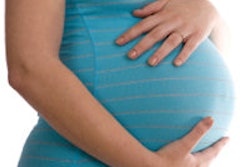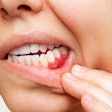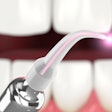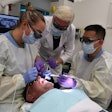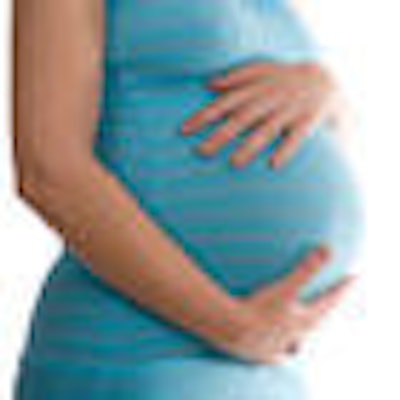
Does treating periodontal disease lead to fewer preterm births?
The research is split, but a new study has found that women who have successful nonsurgical periodontal treatment during their pregnancy are less likely to have premature babies.
The study will be presented in a detailed session at the upcoming 2010 American Association for Dental Research (AADR) annual meeting held in Washington, DC, from March 3-6.
While previous studies have explored the effect of periodontal treatment, irrespective of efficacy of treatment, the current study determined whether successful periodontal treatment actually resulted in reduced infant prematurity, the researchers said.
"This study mines the data to see which patients benefit (in terms of preventing infant prematurity) when they receive scaling and root planing," lead author Marjorie Jeffcoat, D.M.D., a professor at the University of Pennsylvania School of Dental Medicine, told DrBicuspid.com. "If the patient is refractory to mechanical treatment, they are more likely to have a baby born too little and too soon."
These findings have practical implications for dental practitioners, she added.
Scaling and root planing
Dr. Jeffcoat and colleagues studied 872 women between six and 20 weeks gestation (using standard pregnancy dating criteria), with and without periodontal disease. Of these patients, 160 with periodontal disease were treated with scaling and root planning, and received periodontal exams before and after treatment. Unsuccessful treatment was defined as five or more sites that had increased inflammation, pocket depth, or detachment line.
— Marjorie Jeffcoat, D.M.D.
The primary study outcome for this clinical trial was spontaneous preterm birth at less than 35 weeks.
Among the study results:
- Forty-five women had successful periodontal treatment with full-term birth, and four had successful treatment with preterm birth.
- Forty-two women had unsuccessful periodontal treatment with full-term birth.
- Sixty-nine women had unsuccessful periodontal treatment with preterm birth.
- The authors found a "strong and significant" relation between successful periodontal treatment and full-term birth.
- Pregnant women who had unsuccessful scaling and root planing were significantly more likely to have preterm infants.
"Subjects who were successfully treated for their periodontal disease had a significantly lower incidence of preterm birth less than 35 weeks gestation," the authors concluded.
Is treatment safe?
One question remains, however: Is periodontal treatment always safe during pregnancy?
"We have performed nonsurgical periodontal treatment in more than 4,000 pregnant women without an adverse event," Dr. Jeffcoat said. "Of course, we took a careful history and also consulted with their obstetrician where appropriate."
Some experts, however, are skeptical about the study findings.
"Dr. Jeffcoat and colleagues drew their subjects from a large randomized clinical trial (American Journal of Obstetrics & Gynecology, February 2010, Vol. 202:2. pp. 147.e1-147.e8) that compared pregnant women who received periodontal therapy with pregnant women who didn't receive periodontal therapy," said James Hodges, Ph.D., who has conducted related research on this topic (New England Journal of Medicine, November 2, 2006, Vol. 355:18, pp. 1885-1894).
Considering all subjects in both groups of women, Dr. Jeffcoat and colleagues found no effect of periodontal therapy on prematurity, Hodges said.
"Their present abstract abandons the randomization by selecting women in the periotherapy group who were responders and comparing only that subset of responders to the whole control group," he added. "Jeffcoat et al claim that this shows that successful peridontal therapy -- i.e., therapy that produces a response -- causes a reduction in preterm birth."
But this conclusion is not justified, he said. By selecting responders in the treated group, they may have selected a group who happen to have some third characteristic -- a particular genetic makeup, most likely -- that both caused them to respond to periodontal therapy and caused them to be less likely to deliver their babies prematurely.
"In other words, Jeffcoat et al have turned their randomized study into an observational study," Hodges concluded.
Dr. Jeffcoat said Hodges may have misunderstood the study design.
"Patients in the parent study who had periodontal disease and were treated were randomly selected to have second dental examinations," she explained. "After the data set was locked, the incidence of preterm birth in responders was compared to nonresponders."
Data analysis is ongoing, Dr. Jeffcoat added.
Copyright © 2010 DrBicuspid.com




